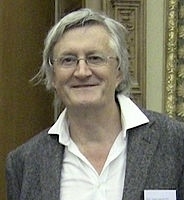Regulation of blood flow at the capillary level in health and disease
 It is often assumed that local increases and decreases of tissue blood flow are mediated by relaxation or contraction of arteriolar smooth muscle but in many tissues, including the heart, brain, kidney and pancreas, capillary control of blood flow by contractile pericytes also occurs. Indeed, in the brain, most of the adjustable resistance of the intra-cerebral vasculature is located in capillaries, and neuronal activity largely increases brain blood flow by dilating capillaries via pericytes. In the heart, kidney and brain, ischaemia leads to pericytes constricting, producing a long-lasting decrease of blood flow after ischaemia, offering a novel therapeutic target for heart attack and stroke. Constriction of cerebral capillaries by pericytes also occurs at an early stage of Alzheimer’s Disease. The SARS-CoV-2 virus causing Covid-19 binds to ACE2 on pericytes and amplifies angiotensin II – evoked pericyte constriction by decreasing ACE2 function. Thus, awareness of the possibility of pericyte-mediated capillary constriction reveals new therapeutic targets to increase blood flow in numerous pathologies.
It is often assumed that local increases and decreases of tissue blood flow are mediated by relaxation or contraction of arteriolar smooth muscle but in many tissues, including the heart, brain, kidney and pancreas, capillary control of blood flow by contractile pericytes also occurs. Indeed, in the brain, most of the adjustable resistance of the intra-cerebral vasculature is located in capillaries, and neuronal activity largely increases brain blood flow by dilating capillaries via pericytes. In the heart, kidney and brain, ischaemia leads to pericytes constricting, producing a long-lasting decrease of blood flow after ischaemia, offering a novel therapeutic target for heart attack and stroke. Constriction of cerebral capillaries by pericytes also occurs at an early stage of Alzheimer’s Disease. The SARS-CoV-2 virus causing Covid-19 binds to ACE2 on pericytes and amplifies angiotensin II – evoked pericyte constriction by decreasing ACE2 function. Thus, awareness of the possibility of pericyte-mediated capillary constriction reveals new therapeutic targets to increase blood flow in numerous pathologies.
The recorded seminar can be viewed here (CRC members login needed).








